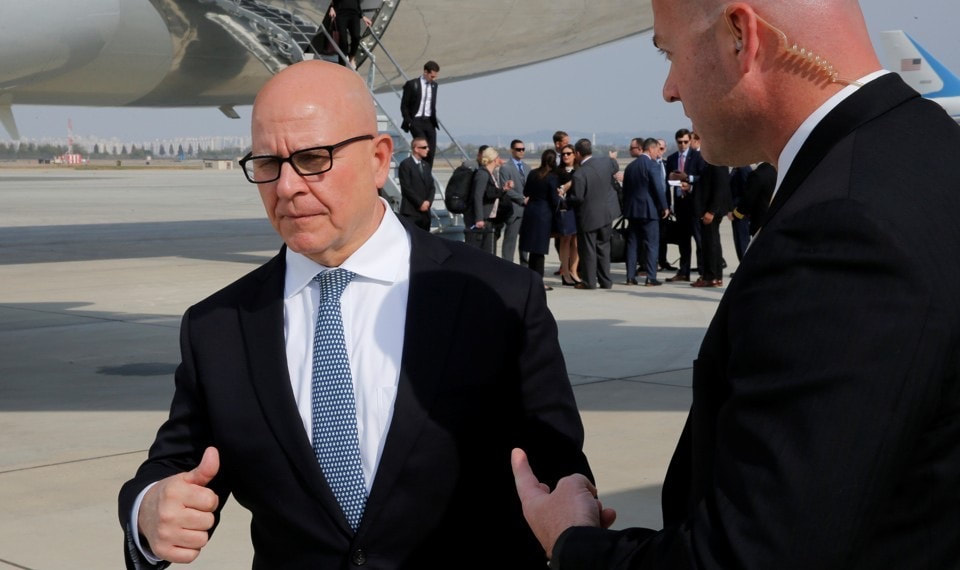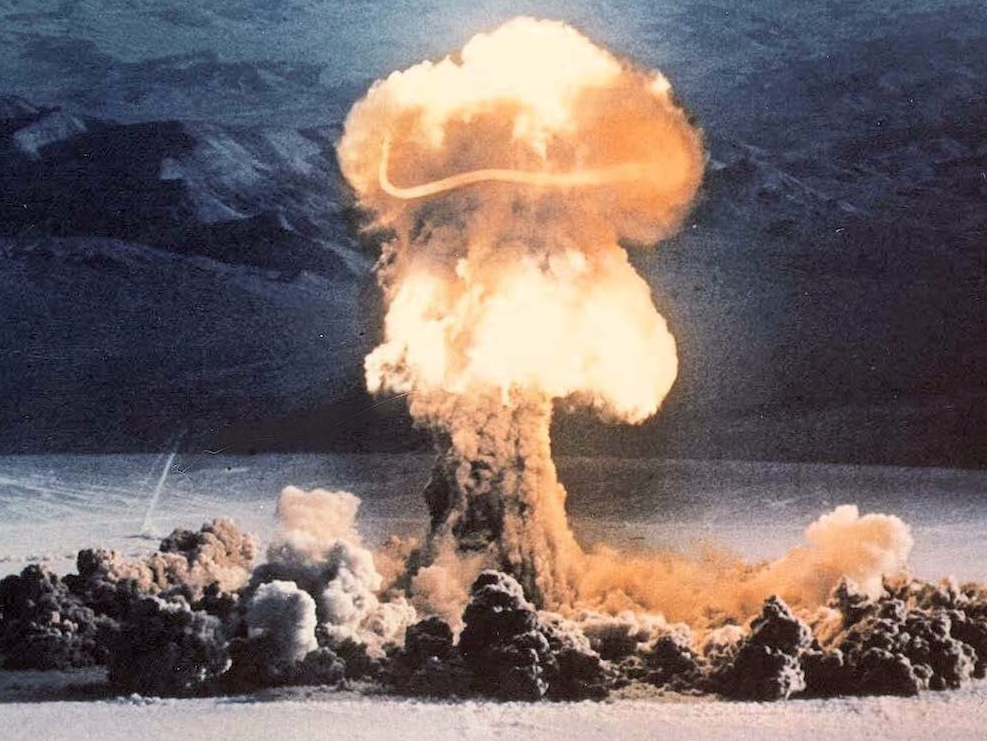By Elliott Weiss

National Security Advisor H.R. McMaster speaks with an aide on the tarmac at Osan Air Base, South Korea, on November 7 2017. (Jonathan Ernst/Reuters)
In November, Dr Patrick McEachern spoke about what North Korea’s goal is in developing nuclear weapons capable of reaching the mainland United States. He suggested that Kim Jong Un’s objectives were to protect his country against an American attack, nuclear or otherwise, and to preserve his regime. Kim, he suggested, was determined not to suffer the same fate as Saddam and Quadaffi, two other dictators who had been deposed after agreeing to abandon their nuclear weapon programs.
A recent article in The Atlantic outlines the thinking of H.R. McMaster, President Trump’s National Security Advisor, on troublesome issues posed by North Korea’s nuclear weapons program. Gen. McMaster thinks it is likely that Kim’s principal goal is to have the capability to threaten the United States with a nuclear attack if it seeks to block an attack by the North’s conventional forces against South Korea. This view is encapsulated in the question “Would the United States Government risk Seattle to save Seoul?”
Gen. McMaster’s thesis varies from the hypotheses discussed by Dr. McEachern. I thought that members of TCFR, especially those who attended Dr. McEachern’s talk, would find it interesting to consider this contrasting point of view. You can find it discussed at some length here.
Elliott Weiss, a retired attorney and professor of law, is a director of TCFR and the chair of the board’s Nominating Committee.
A recent article in The Atlantic outlines the thinking of H.R. McMaster, President Trump’s National Security Advisor, on troublesome issues posed by North Korea’s nuclear weapons program. Gen. McMaster thinks it is likely that Kim’s principal goal is to have the capability to threaten the United States with a nuclear attack if it seeks to block an attack by the North’s conventional forces against South Korea. This view is encapsulated in the question “Would the United States Government risk Seattle to save Seoul?”
Gen. McMaster’s thesis varies from the hypotheses discussed by Dr. McEachern. I thought that members of TCFR, especially those who attended Dr. McEachern’s talk, would find it interesting to consider this contrasting point of view. You can find it discussed at some length here.
Elliott Weiss, a retired attorney and professor of law, is a director of TCFR and the chair of the board’s Nominating Committee.


 RSS Feed
RSS Feed